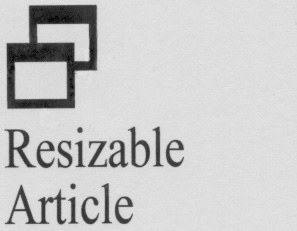![]()

Bible Quiz
Written August 14, 2003
![]()
"From a child thou hast known the holy scriptures," wrote Paul to Timothy, "which are able to make thee wise unto salvation through faith which is in Christ Jesus. All scripture is given by inspiration of God, and is profitable for doctrine, for reproof, for correction, for instruction in righteousness." II Timothy 3:15-16
Yes, the Bible is the foundation of the Christian faith. But how well do we really know the scriptures? If every word was inspired by God, then an understanding of every word is essential to our complete understanding of God's will for us.
Many of us have gaps in our knowledge of what the Bible says. We may not be able to answer even simple questions, ranging from "What is the tenth Commandment?" to "What happens to us after we die?" But it's all there in black and white.
To improve our understanding of the scriptures, this Web page asks 28 questions in a multiple-choice format, followed by the Bible verses that support the correct answers. (All Bible quotations are given in the "King James" or Authorized Version.)
Try taking this quiz with your family. If you're unsure about a question, try clicking each of the answers in turn.
Along the way, you'll discover an important truth.
Question 1.
Who created heaven and earth?
Question 2.
How many Gods are there?
Question 3.
Were there birds on earth before there was man?
Question 4.
God created everything. Does that include evil?
Question 5.
How many sheep did Noah take on the ark?
Question 6.
Why do we set aside one day a week from work?
![]()
Because
the Creator rested on the seventh day.
![]()
Because
God brought the Israelites out of Egypt.
Question 7.
What is the tenth Commandment?
![]()
Don't
cook a goat in its mother's milk.
Question 8.
Is God all-powerful?
Question 9.
Is God just?
Question 10.
Does God ever change his mind?
Question 11.
Does God ever become tired?
Question 12.
Can God always be found by those who seek him?
Question 13.
In the time of Moses and Aaron, did God order the priests to offer burnt sacrifices?
Question 14.
Did God order his people to commit genocide?
Question 15.
Does God lie?
Question 16.
Is it good to get drunk?
Question 17.
Did Jesus come to earth to bring peace?
Question 18.
Joseph was the earthly father of Jesus. But who was the father of Joseph?
Question 19.
As Christians, should we keep our good deeds secret?
Question 20.
As Christians, should we defend ourselves with weapons?
Question 21.
Should we hate the members of our family?
Question 22.
Pilate placed a sign on the cross. What did it say?
![]()
"This
is the King of the Jews."
![]()
"This
is Jesus the King of the Jews."
![]()
"Jesus
of Nazareth the King of the Jews."
Question 23.
On the first Easter, how many women discovered the empty tomb?
Question 24.
At what time of morning did Mary Magdalene come to the tomb?
Question 25.
How should women behave in church?
![]()
Avoid
church office, even that of Sunday School teacher.
Question 26.
If your Christian beliefs are challenged, should you have an answer ready?
![]()
No;
the Holy Spirit will prompt you when the time comes.
Question 27.
Do Christians ever sin?
Question 28.
Is there life after death?
Have you noticed? Every answer you choose turns out to be correct! It's a miracle.
Actually, there's nothing miraculous here. The scriptures simply give more than one answer to each of the questions we've posed. Some of the answers contradict each other.
The lesson: Let us not be idolatrous. Let us not worship the Bible. It is not perfect. It is not God. Rather, it is "the word of God" as it occurred to various people in various situations over a period of a thousand years.
At one time, an eye for an eye was simple justice. At another time, an eye for an eye was cruel and unusual punishment. Both opinions are in the Bible. Both may be right, or neither.
The Bible is both "honor your father" and "hate your father."
It is both "two sheep" and "seven sheep."
It is Jacob and Heli.
It is peace and a sword.
The Bible is black and white.
Many of the questions and answers in this article have been adapted from William Henry Burr's 1859 book Self-Contradictions of the Bible.
